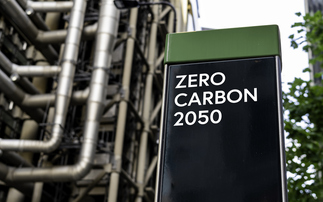From changing lightbulbs to replacing the doors, these are the best ways to save energy and money in your warehouse
Improving energy efficiency within your warehouse environment can bring a multitude of benefits to a company. Being able to boast green credentials can help improve your business's reputation, and could...
To continue reading this article...
Join BusinessGreen
In just a few clicks you can start your free BusinessGreen Lite membership for 12 months, providing you access to:
- Three complimentary articles per month covering the latest real-time news, analysis, and opinion from Europe’s leading source of information on the Green economy and business
- Receive important and breaking news stories via our daily news alert
- Our weekly newsletter with the best of the week’s green business news and analysis






